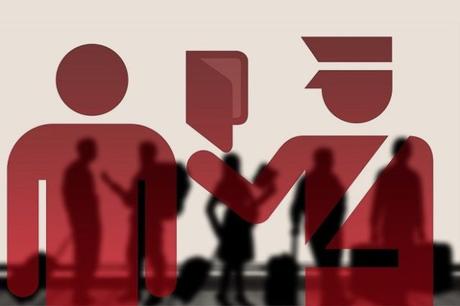
Sometimes, it's important a background check on oneself. Most of us have probably unknowingly had someone Google our names before. You have likely looked a few names up too, but how often do you Google your name?
Most of us have once or twice, but you should not stop there. It is essential to check the history linked with your social security number, your credit score, and even your criminal background. You could be a victim of identity theft, or you could discover some personal information that was entered in error.
It is a good idea to make a regular practice of running a background check on your behalf. Credit card and bank account fraud have been on a steady increase. The Federal Trade Commission processed over one million fraud reports last year, with over 150,000 of them being reports of credit cards getting issued in the names of unknowing victims.
A victim of this type of fraud faces the overwhelming task of making phone calls or sending emails to file dispute claims on the unauthorized charges. Last year, over 14 million people reported being a victim of identity theft. Victims of identity fraud are challenged with the significant inconvenience of filing police reports and associated affidavits.
Some identity theft victims report life-changing and sometimes catastrophic outcomes because of fraud. Many people can spend countless hours and sometimes years trying to repair the damage done by identity theft.
Identity theft is only one reason you should consider running a background check on yourself. Recent cyber-attacks and data breaches likely ensure that pieces of our personal information are accessible by criminals. Sadly, many fraud victims do not even realize they are victims of fraud until they attempt to make a purchase. Their debit card does not work, and that is when they realize their account is empty. For many people, this can be catastrophic.
Other unfortunate victims find out when they go to apply for a loan and then discover they owe thousands or tens of thousands in loan debt that they never incurred. Identity theft can even hamper your ability to get a job. If the employer does a background check only to find unsavory facts about your credit or other issues, the employee may not have any idea that there is cause for concern.
By running a routine background check, an intended victim may be able to catch fraud attempts before a scam can do severe damage. Being proactive and stopping fraud attempts can help decrease the threat from growing into something more substantial and more challenging to repair.
The damage created by fraudulent activity against a person can cause devastation in their financial, personal, and professional lives. There are numerous background check websites available.
Some of the best places to start to check your background for personal information are:
You should also check social media sources such as:
There are numerous background check websites available. Many give you free basic information and charge a fee for a more in-depth history. These are often the same sites that employers use for pre-employment background checks. The best background check websites include:
If you find yourself a victim of bank or credit card fraud, you should immediately call your bank or the issuer of the compromised credit card. It is a good idea to keep a list of each of your credit card numbers along with the toll-free number printed on the back of each card. You should keep this information kept in a safe location. This practice will ensure that your ability to contact all the companies you hold a card with.
A few things you can do to help protect yourself:
- Keep your social security card in a safe location.
- Do not give out credit card numbers over the phone.
- Change all your passwords for sites that contain personal information. Use strong passwords.
- Do not use the same password on multiple sites.
Many websites offer a service of protection like Lifelock and IDshield. Also, most credit card issuers provide a service of identity protection to their cardholders.
If you suspect fraudulent activity, you should call your local law enforcement agency. Once you have filed a report there, contact the three credit reporting agencies; Equifax, Experian, and TransUnion. Contact the social security administration to report that someone other than you is using your social security number.


